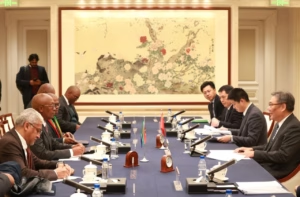The South African Post Office (SAPO) has halted all outbound parcel deliveries containing goods to the United States with immediate effect, citing complications brought about by recent changes to United States customs procedures. The move aligns South Africa with several other national postal operators in Europe, all of whom are reassessing compliance in light of sweeping trade regulation reforms introduced by the United States administration.
The new policy originates from an executive order signed by United States President Donald Trump last month. In what has been described as a major shift in the country’s import policy, the order removes the long-standing 800 United States dollars duty-free threshold for international parcels. This change means that all packages entering the United States—regardless of value—are now subject to customs duties.
Foreign postal authorities, including SAPO, are now being instructed to collect and remit United States customs duties prior to dispatching goods into the country. This adjustment places a considerable administrative and logistical burden on postal services worldwide, prompting several—including those in France, Spain, Germany, and the United Kingdom—to pause shipments temporarily while adapting to the new rules.
SAPO confirmed the development in a media statement, acknowledging that the decision was not taken lightly but was necessary under the new regulatory environment.
“Given the complex processes required to comply with the new regulation, we have no choice but to temporarily suspend these shipments. We regret any inconvenience this may cause to our customers,”
said Anoosh Rooplal, Joint Business Rescue Practitioner at SAPO.
Importantly, the Post Office emphasised that the suspension applies strictly to parcels containing goods. Other categories of mail—including letters, official documents, and special exemptions such as military correspondence—will continue to be processed and delivered without interruption. This distinction is crucial for customers who may rely on postal services for critical documentation or exempt categories.
Parcels that have already entered SAPO’s system, particularly those processed through the Germiston International Mail Centre, but which do not meet the new customs compliance requirements, will not be allowed to proceed to the United States. Instead, they will be returned to the original senders. This decision, though inconvenient for many, ensures that parcels are not indefinitely delayed or caught in customs limbo on foreign soil.
While no exact time frame has been offered for the resumption of parcel services to the United States, postal authorities across the globe are working to streamline systems and introduce measures to collect duties in advance. SAPO is expected to provide further updates once an effective compliance framework is in place.
This change in international trade dynamics raises broader questions about global postal cooperation and the implications of increasing protectionist trade policies. As more countries adapt to unilateral changes made by dominant economies, smaller and developing nations may face heightened logistical and economic pressures. For South Africa, the latest development is both a practical disruption and a reflection of shifting geopolitical trade strategies.
“We regret any inconvenience this may cause to our customers,”
Rooplal reiterated, underlining SAPO’s commitment to restoring full services once regulatory clarity is achieved.

















